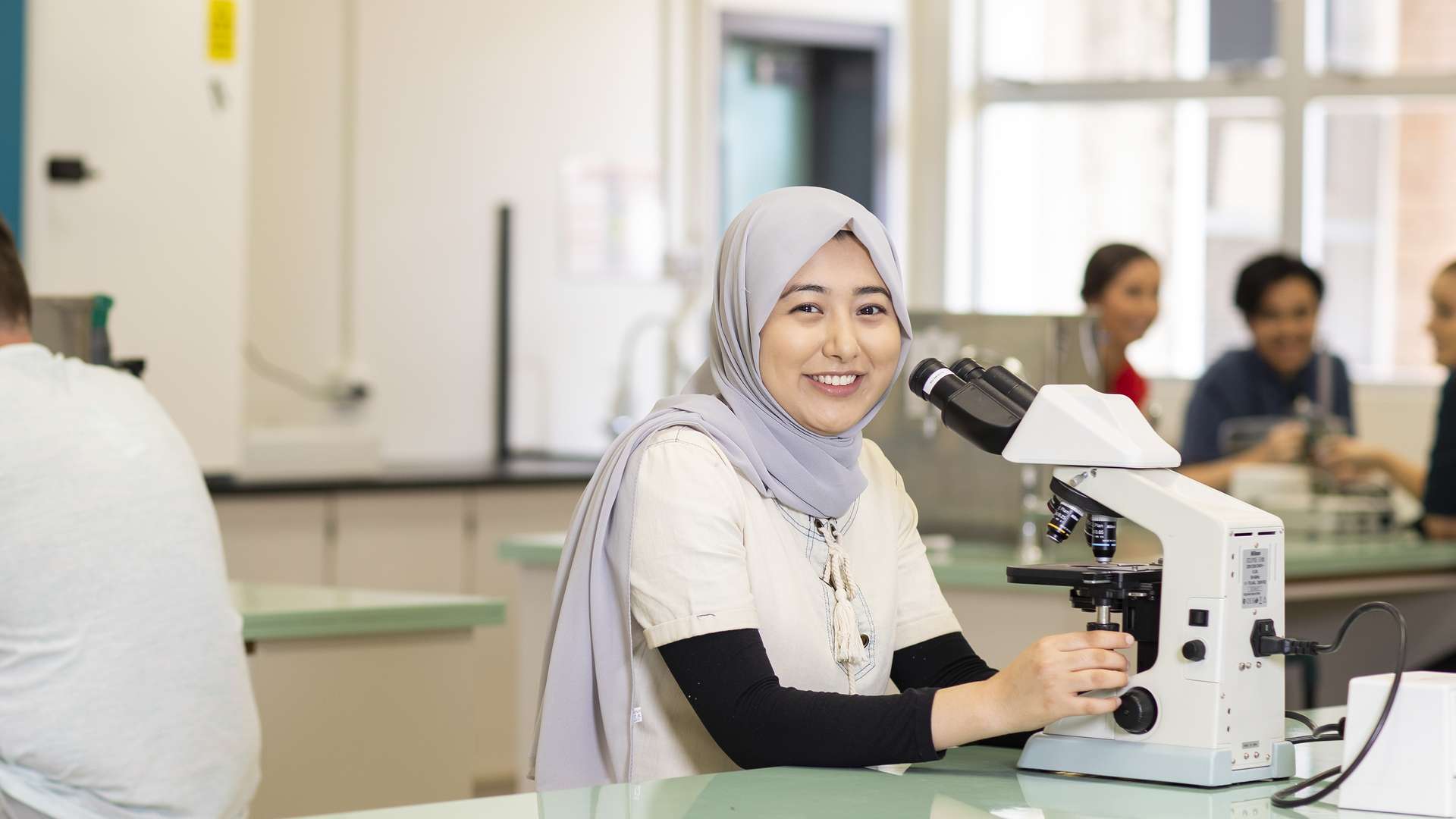
Enhance your clinical decision-making skills, knowledge and experiences as a laboratory scientist, and open up opportunities for research or leadership within your field of expertise with CQU's Master of Laboratory Medicine. Gain advanced discipline-specific knowledge in medical laboratory science and advance your career.
The Master of Laboratory Medicine will qualify you to work as a medical laboratory scientist. You will gain advanced theoretical and technical knowledge in the clinical disciplines of laboratory medicine for application in the diagnostic setting. You will build technical and evaluative skills through laboratory and clinical training to assess and implement recommendations for best practices in patient testing and monitoring.
This course will enable you to develop an advanced level of communication skills to interact positively with patients and other health professionals ready for the clinical or scientific work environment. Clinical decision-making and problem-solving abilities are key skills for the medical laboratory scientist. You will develop clinical decision-making and problem-solving skills through experience in professional practice, clinical case studies and research opportunities.
Throughout your course, you will benefit from contextual learning experiences and practical training through a combination of a block practical intensive in our Rockhampton medical laboratory and two clinical placements totalling 560 hours. Travel and accommodation costs for the compulsory block practical intensive at the Rockhampton campus are provided for students admitted to the Melbourne and Sydney campuses.
As part of this course, you may also be eligible to study CQU's Graduate Certificate of Research (CL58) embedded within the course structure, providing a pathway to a Research Higher-Degree. To be eligible to undertake the Graduate Certificate in Research, you must have clinical experience in a diagnostic pathology laboratory and will need to arrange a meeting with the Head of Course to confirm your eligibility, the scope of the project and the supervisory team prior to contacting the School of Graduate Research for enrolment.
I love helping people and I want to help better the health services in my country. The course is so in-depth — I love anything to do with blood and to be able to delve into the depths of it is fun and exciting!
Natasha Philip
Master of Laboratory Medicine | Papua New Guinea
The course structure and available locations can change depending on when you want to study. You can choose the intake that best suits you in the drop-down menu below.
You must complete 14 units (96 credits):
You will complete the first seven units listed below.
You will complete Clinical Placement in Laboratory Medicine (LMED29013).
You will choose two advanced units from the list below:
You will choose either the Graduate Certificate of Research* or four units from the list below:
Please note that units already selected as part of the advanced or core units cannot be selected from the above optional list.
*To be eligible to undertake the Graduate Certificate in Research, you must have clinical experience in a diagnostic pathology laboratory. Before enrolling in the Graduate Certificate in Research, you must arrange a meeting with the Head of Course to confirm eligibility, the scope of the project, and the supervisory team.
More information about the units you'll study is available below. Click on a unit to learn more.
560 hours (16 weeks) of work placement at a NATA-approved diagnostic pathology laboratory. Student learning supported by clinical supervisors on-site and academics at CQUniversity.
If you have already completed a study relevant to the course you have enrolled in, you may be eligible for credit transfer.
For your application to be considered, you must meet the following entry requirements.
While not needed to apply, you'll need to meet the following requirements throughout your studies.
This is an approximate cost of enrolling in this course, shown in Australian dollars (A$), for one academic year and is based on a full-time study load (8 units over 2 terms).
Your actual fees may vary, depending on the units that you select to study and your study load. Fees are reviewed each year and are subject to change.
We offer a range of scholarships to support international students. Our merit scholarships are awarded to high-achieving students based on academic excellence and provide course fee reductions ranging from 15% to 25%.
We also have region-specific scholarships for students from selected regions, offering a 25% reduction in course fees.
You don’t need to submit a separate application for scholarships funded by the University. We automatically assess all eligible students for the best available scholarship when you apply for your course.
In addition to your course fees, you must have sufficient funds to cover other study and living expenses. These may include visa application fees, Overseas Student Health Cover (OSHC), textbooks and learning materials, checks and certifications, living expenses and more.
Our easy to use online application system for international students will guide you through the process of applying for a course at CQUniversity Australia.
CQUniversity Australia is a trading name of Central Queensland University
ABN: 39 181 103 288
RTO Code: 40939
CRICOS: 00219C
TEQSA: PRV12073